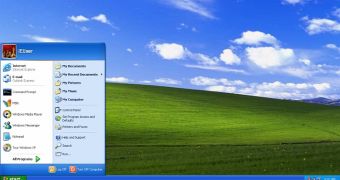The clock is ticking for Windows XP and the operating system launched nearly 13 years ago will be retired in just a few hours, so users don’t really have much time to act in order to make sure that their data remains completely secure.
Of course, without security patches and updates, security vendors across the world are basically the ones who could try to capitalize on the popularity of Windows XP, so maintain support for this OS version is the first thing to do for every software developer out there.
Nonetheless, Kaspersky warns that even though plenty of anti-virus products will still work on Windows XP after end of support, users would have to upgrade at some point, mostly because exploits developed to take advantage of unpatched vulnerabilities in the operating system would become more powerful as time passes by.
At the same time, new security products, including anti-virus software designed to block malware from reaching your computer, will employ new technologies that will no longer work on Windows XP due to its limited support for modern hardware and software.
“Will your anti-virus software protect you? Certainly it will provide protection. But this only holds good if by 'anti-virus' we mean a comprehensive Internet security product that makes use of proactive technology to defend against new, unknown threats - in particular, functionality to prevent the use of exploits,” David Emm, Kaspersky Lab Expert, said today.
“A basic anti-virus product, based largely on signature-based scanning for known malware, is insufficient. Remember too that, as times goes by, security vendors will implement new protection technologies that may well not be Windows XP-compatible.”
So could the upgrade to a newer operating system be avoided? Not really, Emm explained, pretty much because it’s the only way to make sure that there’s someone out there ready to fix any found vulnerability without paying a fortune for custom support. It is indeed a very expensive process, but it’s worth it, Emm added.
“There's no question that switching to a newer operating system is inconvenient and costly - for individuals and businesses. But the potential risk of using an operating system that will become increasingly insecure might well outweigh the inconvenience and cost,” he said.
Windows XP is still installed on 28 percent of the desktop computers across the world, so plenty of users would actually miss the April 8 upgrade deadline and stick to their OS version for a little bit longer.

 14 DAY TRIAL //
14 DAY TRIAL //